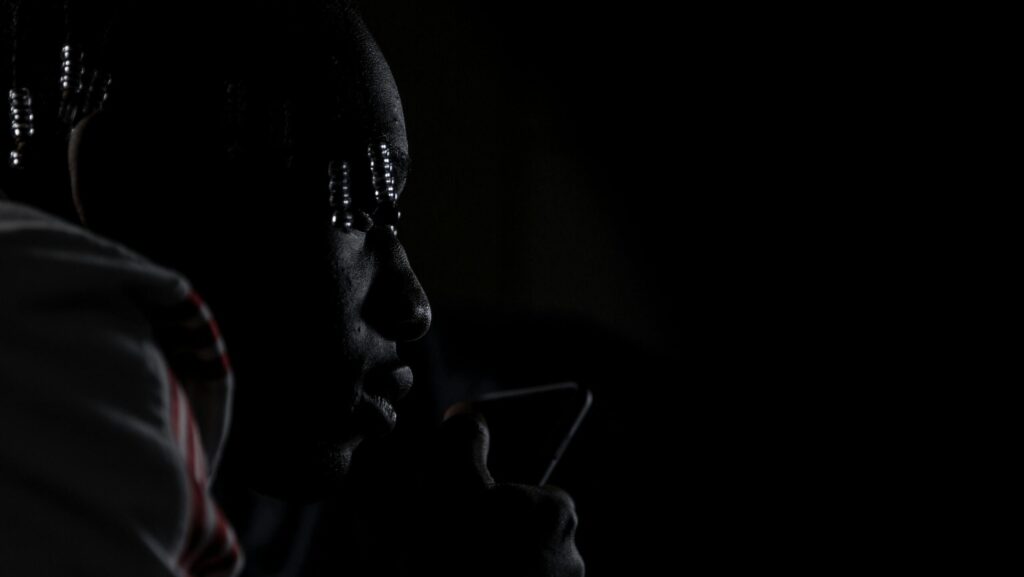“If we don’t tell our stories, someone else will… and they’ll get it wrong.”
Reclaiming the Narrative
For too long, Africa’s story and the stories of its people have been told by others. Through biased media, stereotypes and limited narratives, we’ve been boxed into one-dimensional images that don’t reflect our depth, brilliance, or diversity. But a shift is happening. And it’s being led by creatives with a mic in one hand and a smartphone in the other.
We’re using music and technology to take back the narrative, not just for ourselves, but for the generations coming after us.
Music as a Medium of Truth
Music has always been a vessel for truth. From Fela Kuti’s protest anthems to today’s Afro-fusion wave, African music has never just been about rhythm but about resistance, resilience, and representation.
Whether you’re telling the story of heartbreak in the streets of Lagos, the pride in your heritage or the anxiety of being a young African in a fast-changing world, music lets you document your experience in your own voice.
We’ve all heard the stories of mirrors, trades and slaves. Well, those days are long gone now. We’re no longer ignorant to the devices of progress. Now, there’s access. Access to tools that were once gatekept. You can now record, release, and reach listeners globally, all from your bedroom.
Your story is no longer waiting for permission. Why? Because technology has leveled the playing field.
Tech: The Great Equalizer
Technology is giving African creatives the power to produce, promote, and profit from their stories without waiting for validation from the West.
- Distribution platforms like DistroKid and CD Baby let artists release globally.
- Social media platforms like TikTok, Instagram, and X allow direct connection with fans.
- Music software like FL Studio, Reaper and BandLab have leveled the playing field.
- Blockchain and Web3 are opening new doors for ownership and creative freedom.
But more than tools, tech gives us autonomy. We don’t need to wait for a label or foreign investor to greenlight our creativity. We can build our own platforms, launch our own campaigns, and define our own narratives.
Shifting from Consumption to Creation
For a long time, Africans were seen primarily as consumers of global culture. Now we’re becoming the creators, curators, and catalysts of the next wave. The sound of Africa is global. The style of Africa is influential. But beyond trends, there’s a deeper truth: We are not just the inspiration, we are the authors. It’s no longer about begging to be seen. It’s about owning the lens.
That’s why we need to reclaim the narrative. When we reclaim our narrative, we give voice to the nuances of being African today and challenge harmful stereotypes with authentic stories. We empower young people to see possibility in their creativity and create archives that future generations can be proud of. It’s not just cultural, it’s personal. It’s very personal. It’s about healing from the erasure and rewriting our names in bold, not footnotes.
So, How Do You Start Telling Your Own Story?
Whether you’re a songwriter, sound engineer, a poet, painter, gamer or a filmmaker, whichever art form you express yourself with, here’s how to make your work count:
1. Be Specific
What’s your story? The more personal your story, the more powerful it becomes. Speak your truth. Speak your dialect, your slang. Share your lived experience.
2. Create with Intention
Don’t just chase trends. Create what needs to exist. As explained above, you are unique and so is your story. And that unique story is the one no one’s told yet. That’s who you are. That’s your lane.
3. Use the Tools You Have
You don’t need the biggest setup. Start with what’s in your hand, your phone, your voice, your ideas. All you have is all you need.
4. Collaborate and Build Community
Link up with like minds. Build collectives. Share resources. We rise faster together.
5. Own Your Work
Understand your rights. Protect your IP. Learn the business. Reclaiming the narrative also means reclaiming ownership.
Final Thought: Your Story Is Power
In this moment, we are no longer just responding to narratives, we are writing them. Enough of other people telling us who we are and what we can do. It’s time to reclaim the narrative. Through craft. Through code. Through connection. We are the generation that creates not just for applause, but for legacy

